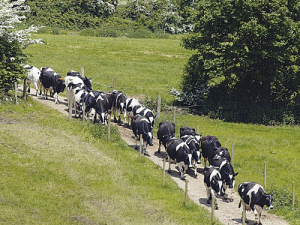Roger Smith, the man appointed to head the newly-created Biosecurity New Zealand, and his team find this this statistic is frightening.
Turning around this lack of appreciation of the importance of biosecurity is a task for Smith and his team.
“You ask people, ‘does biosecurity impact on you?’ and they say, ‘no’. So then you ask, ‘do you like to go camping?’ and they say, ‘yes’. I then ask them if want to have snakes in the ground and obviously they say ‘no’, then I point out that is biosecurity at work. I also point out some other nasty bugs and diseases that could affect our biodiversity and they start to get it. So it’s about making the biosecurity message relevant to people,” he says.
















